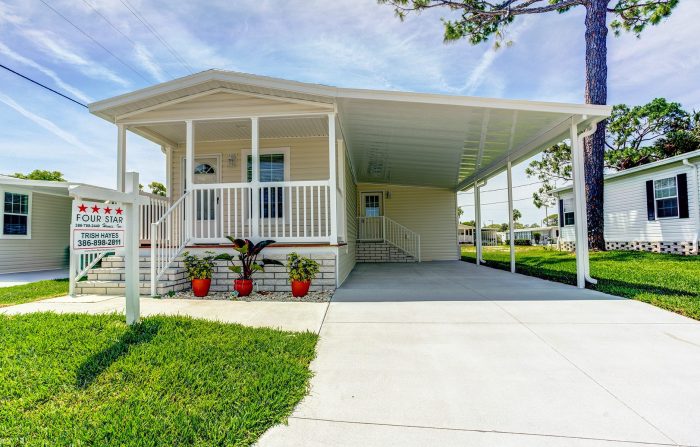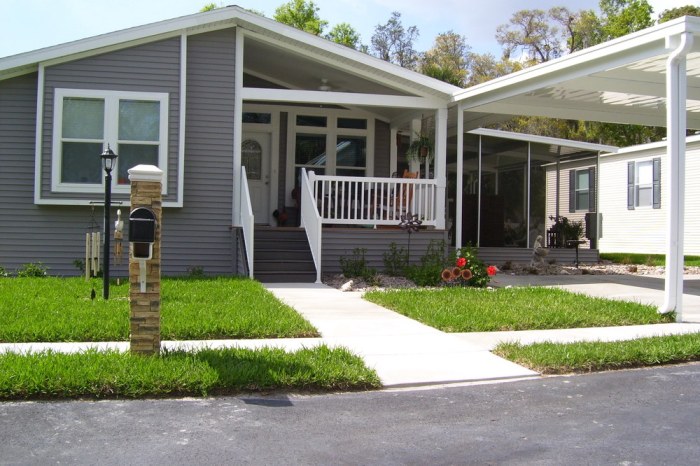Trailer Parks Near Me: Finding the right mobile home community can feel overwhelming. This isn’t just about finding a place to park your trailer; it’s about discovering a community, weighing affordability against amenities, and understanding the legal landscape. From location-based searches to understanding hidden costs and community dynamics, this guide cuts through the noise and empowers you to make an informed decision.
We’ll explore everything from luxury options to budget-friendly choices, ensuring you find a trailer park that truly meets your needs and lifestyle.
This comprehensive guide delves into the practical aspects of finding a trailer park, including how to utilize online search tools effectively, the importance of in-person visits, and a detailed checklist to help you evaluate your options. We’ll also cover crucial legal considerations, tenant rights, and common regulations to ensure a smooth and informed experience. Whether you’re a seasoned RVer or a first-time mobile home owner, this resource is designed to simplify your search and help you find the perfect community.
Legal and Regulatory Aspects

Operating a trailer park involves navigating a complex web of legal and regulatory requirements. Understanding these aspects is crucial for both park owners and residents to ensure a smooth and legally compliant operation. Failure to comply can lead to significant fines, legal disputes, and reputational damage. This section Artikels the key legal considerations for both parties.
Legal Requirements for Operating a Trailer Park
Establishing and operating a trailer park requires compliance with various federal, state, and local laws. These regulations often cover zoning ordinances, building codes, environmental protection, and accessibility standards. For instance, zoning laws dictate the permitted land use, density restrictions, and setback requirements. Building codes ensure the safety and structural integrity of the park’s infrastructure, including roads, utilities, and common areas.
Environmental regulations address issues such as wastewater treatment and hazardous waste disposal. The Americans with Disabilities Act (ADA) mandates accessibility for individuals with disabilities in all areas of the park. Specific requirements vary significantly by location, necessitating thorough research and consultation with relevant authorities.
Tenant Rights and Responsibilities in Trailer Parks
Tenants in trailer parks have specific rights and responsibilities, often Artikeld in lease agreements and local ordinances. These rights typically include the right to quiet enjoyment of their property, protection from unreasonable eviction, and access to essential services. Responsibilities often involve paying rent on time, maintaining the cleanliness of their property, and adhering to park rules. State laws often dictate the procedures for eviction, requiring park owners to follow specific legal processes.
Understanding these rights and responsibilities is essential for both tenants and park owners to avoid potential conflicts.
Regulations Concerning Park Maintenance and Safety
Maintaining a safe and well-maintained trailer park is crucial for both residents and the park owner. Regulations often address aspects such as fire safety, sanitation, and security. Fire safety measures may include requirements for fire extinguishers, smoke detectors, and regular fire inspections. Sanitation regulations address wastewater disposal, garbage collection, and pest control. Security measures might include adequate lighting, security patrols, and access control systems.
Non-compliance can result in significant penalties and legal action.
Examples of Legal Disputes Between Park Owners and Residents
Disputes between park owners and residents are common and can arise from various issues. These might include disagreements over rent increases, evictions, park rules enforcement, and maintenance responsibilities. For example, a dispute might arise if a park owner raises rent significantly without proper notice or justification. Another common issue involves disagreements over the condition of the park’s infrastructure, with residents alleging negligence on the part of the owner.
Such disputes can lead to costly litigation and negatively impact the park’s reputation. Mediation or arbitration can often resolve these disputes more efficiently than court proceedings.
Role of Local Government in Regulating Trailer Parks
Local governments play a significant role in regulating trailer parks through zoning ordinances, building codes, and health and safety regulations. They issue permits for the establishment and operation of trailer parks and conduct inspections to ensure compliance with these regulations. Local governments also address issues such as water and sewer services, road maintenance, and waste disposal within the park.
Their involvement is crucial in ensuring that trailer parks meet minimum standards of safety, sanitation, and habitability, protecting both residents and the broader community.
Finding and Choosing a Trailer Park: Trailer Parks Near Me

Finding the perfect trailer park can feel overwhelming, but a strategic approach can simplify the process and ensure you find a community that meets your needs and budget. This involves a multi-step process, combining online research with thorough in-person visits. Remember, your choice directly impacts your comfort, safety, and overall quality of life.
Effectively searching for a suitable trailer park requires a blend of online exploration and boots-on-the-ground investigation. Leveraging online resources efficiently is crucial to narrowing down your options before committing time to physical visits. Remember, the goal is to identify potential parks that align with your specific criteria before you begin the more time-intensive process of in-person assessments.
Utilizing Online Resources to Locate Trailer Parks
Online resources are your first line of defense in the trailer park search. Websites like RV Parks and Campgrounds, or specialized search engines focusing on manufactured housing communities, offer extensive listings. You can filter by location, amenities, price range, and even pet policies. Google Maps is also invaluable; searching “trailer parks near me” provides a visual representation of nearby options, including user reviews and ratings.
Pay close attention to the star ratings and read through recent reviews to gauge the overall resident experience. Consider using advanced search filters to refine your results by specifying your desired amenities (laundry facilities, community centers, etc.). For example, searching for “55+ trailer parks with swimming pools near [your city]” will yield much more precise results.
The Importance of In-Person Visits, Trailer Parks Near Me
While online research is essential for initial screening, an in-person visit is non-negotiable. Online reviews can be subjective and may not capture the complete picture. A visit allows you to assess the park’s overall condition, observe the cleanliness and maintenance of common areas, and gauge the atmosphere. You can also speak with current residents to gain firsthand insights into the community’s dynamics and management.
For example, you might ask residents about their experiences with park management, the frequency of maintenance, and the overall sense of community. A walk around the park during different times of the day will also give you a feel for the level of activity and noise.
Essential Factors to Consider When Choosing a Trailer Park
Before embarking on your site visits, prepare a checklist of crucial factors. This ensures a consistent evaluation of each potential park. This will help avoid emotional decisions based solely on initial impressions.
Consider the following crucial aspects:
- Location and Accessibility: Proximity to work, schools, shopping, and healthcare facilities is paramount. Consider the ease of access to major roads and public transportation.
- Amenities and Facilities: Assess the availability of laundry facilities, community centers, swimming pools, playgrounds, and other amenities that are important to you.
- Lot Sizes and Utilities: Check the size of the lots to ensure they accommodate your trailer and any additional structures. Confirm the availability and cost of utilities (water, sewer, electricity).
- Rent and Fees: Compare rental rates and fees across different parks. Be sure to understand all associated costs, including application fees, security deposits, and any additional charges.
- Park Rules and Regulations: Review the park’s rules and regulations carefully to ensure they align with your lifestyle and preferences.
- Safety and Security: Observe the park’s security measures, such as lighting, fencing, and gated entrances. Inquire about the park’s crime rate and safety record.
- Community Atmosphere: Observe the interactions between residents and gauge the overall atmosphere of the community. A friendly and welcoming community can significantly enhance your living experience.
A Step-by-Step Guide for Evaluating Trailer Park Options
1. Initial Online Research
Utilize online resources to identify potential parks in your desired location and price range.
2. Shortlist Potential Parks
Based on online research, create a shortlist of 3-5 parks that meet your initial criteria.
3. Schedule In-Person Visits
Arrange visits to each park on your shortlist. Try to visit at different times of the day to observe the park’s activity levels.
4. Thorough Site Inspection
During your visits, systematically evaluate each park using your checklist. Pay close attention to the condition of the lots, common areas, and amenities.
5. Engage with Residents
Speak with current residents to gather firsthand insights into their experiences.
6. Review Park Documents
Carefully review the park’s rules and regulations, rental agreement, and any other relevant documents.
7. Compare and Contrast
After visiting all the parks, compare and contrast your findings based on your checklist.
8. Make Your Decision
Based on your evaluation, select the park that best meets your needs and preferences.
Ultimately, finding the ideal trailer park near you hinges on careful research, realistic expectations, and a clear understanding of your priorities. By leveraging online resources, visiting potential parks in person, and thoroughly evaluating your options against a comprehensive checklist, you can confidently navigate the process and secure a comfortable and fulfilling living environment. Remember to factor in not just the immediate costs but also potential hidden expenses and the long-term implications of community life.
With a strategic approach and the right information, finding your perfect trailer park is entirely achievable.

